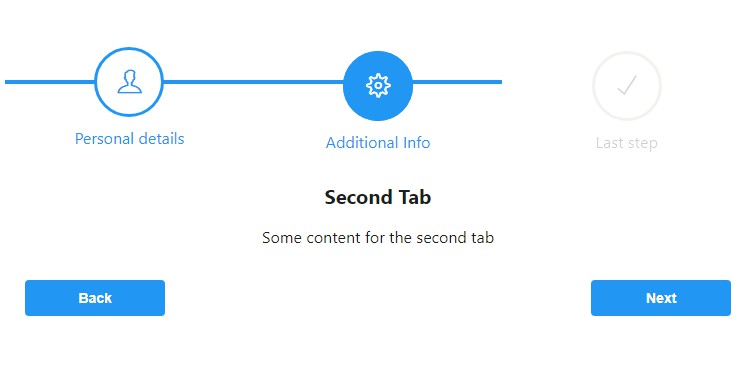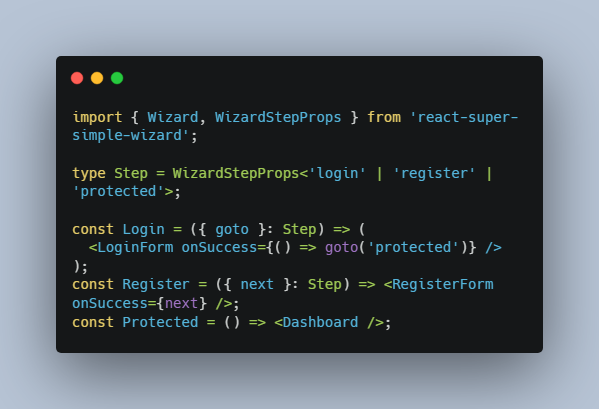react-multistep-wizard
React wizard component
Install
npm install --save react-multistep-wizard
Usage
import React from 'react';
import { Wizard, Steps, Step } from 'react-multistep-wizard';
// simple example:
class Example extends React.Component {
render() {
return (
<Wizard>
<Steps>
<Step>
{ctx => (
<div>
Step 1: <button onClick={ctx.next}>Next Step</button>
</div>
)}
</Step>
<Step>
{ctx => (
<div>
Step 2: <button onClick={ctx.next}>Next Step</button>
</div>
)}
</Step>
</Steps>
</Wizard>
);
}
}
API
Exports:
Components:
Wizard
Component that controls the entire state of the component.
props:
safe– keeps the app from breaking on attempts to go to non existing steps.onChange– function triggered on change.startStep– choose from which step to start the wizard. Defaults to 1.externalOverrides– use it for the external control of the component, for example if you want the wizard component to be controlled from an external source.
<Wizard
safe={false}
onChange={console.log}
startStep={1}
externalOverrides={{
currentStep: externalCurrentStep,
next: externalNextFn,
previous: externalPreviousFn,
jump: externalJumpFn
}}
>{...}</Wizard>
Steps
Component that controls the rendering of the current step. Doesn’t accept any
props, and must have the Step components as children.
useWizard
Hook that exposes the entire Wizard component state to consumer components.
Step
Component that describes the actual step. By using render prop function, it can pass the wizard’s context to the UI in order to allow user to control it from within it.
Render prop options from WizardContext:
currentSteptotalStepspreviousnextjumpinit
WithWizard
Component similar to Step. The only difference is that it should not be
rendered from the Steps component, that way making sure it is always rendered
regardless of the current step. Convenient for progress indicators.
TypeScript Types:
WizardProps
WizardContextState
For more info check out the example folder or the live demo.
License
MIT © alan2207





